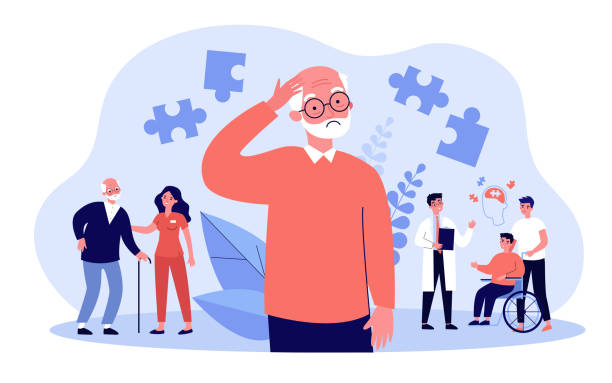
As we age, mental health becomes more and more important, especially people aged 60 or above who make contributions to society as family members, volunteers and as active participants in the workplace. Sometimes they may find themselves alone in new living arrangements. At the same time, they are more likely to experience several conditions.
While most have good mental health, many older people are at risk for mental illness, neurological disorders or substance use problems as well as other health conditions such as diabetes, hearing loss, dementia and osteoarthritis.
In order to enjoy their best lives it is estimated that many will need to seek out senior therapy.

Risk factors for mental health problems
1. Stress
Life stress common to all people, older people may experience such stress. Stress can lead to a significant decrease in capacity and a decrease in efficiency.
Stressors can result in isolation, loneliness or psychological distress in older people, for which they may require long-term care.
2. Less energy
As we age, our physical health will decline and our performance will decrease. Older adults may experience reduced mobility, chronic pain, frailty or other health problems, for which they require some form of long-term care.
3. Physical health impact
Physical health has an impact on mental health and vice versa. Older adults with a physical health condition such as heart disease, have a higher rate of depression than healthy people. In addition, untreated depression in older people with heart disease can have a negative effect on its outcome.
Is it time to enroll in senior therpy?
In your life or you may have noticed some changes in the life of a senior member of your family- such as irritability, stress, anxiety, low energy, difficulty sleeping and difficulty concentrating then you should consult a therapist.